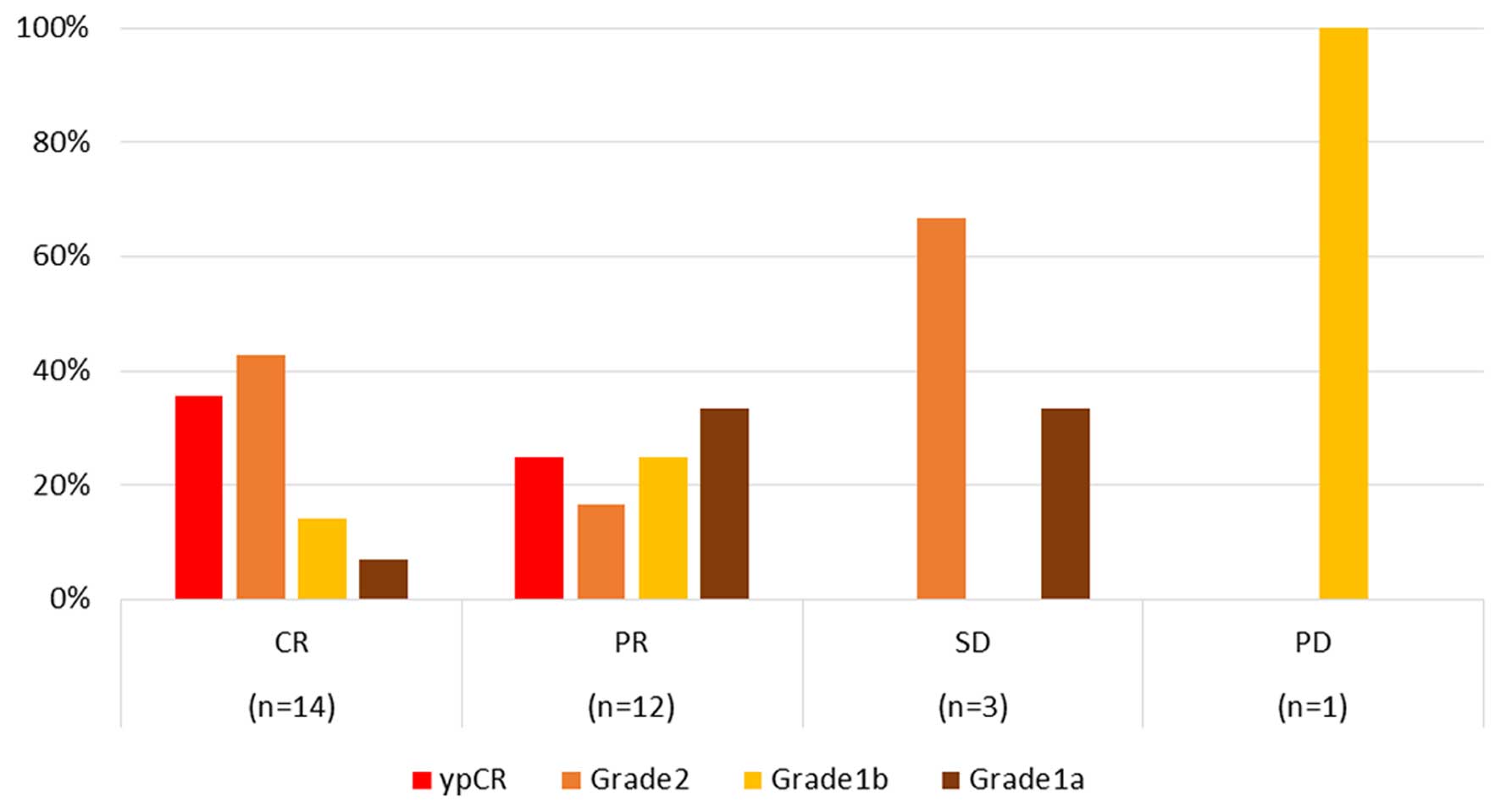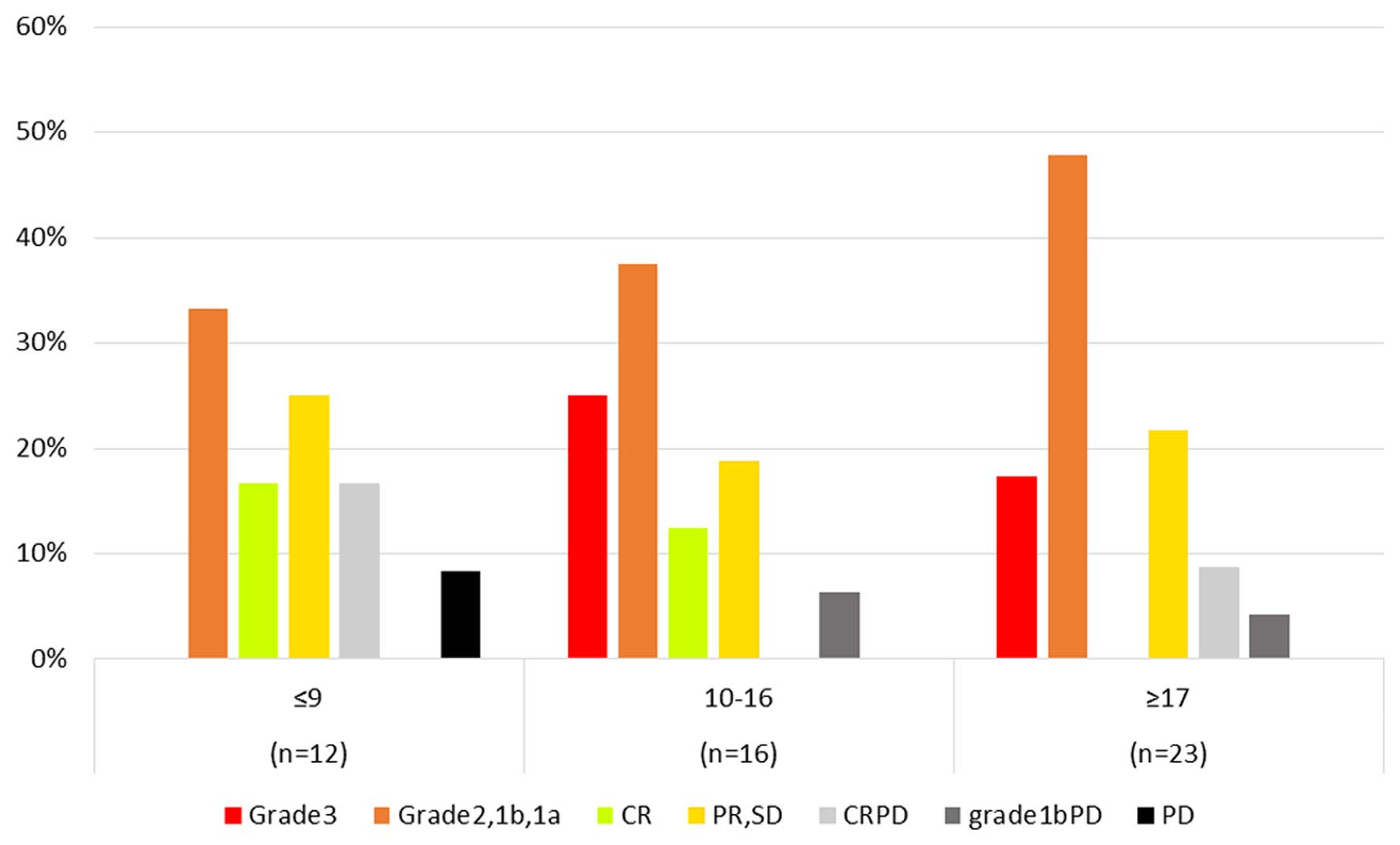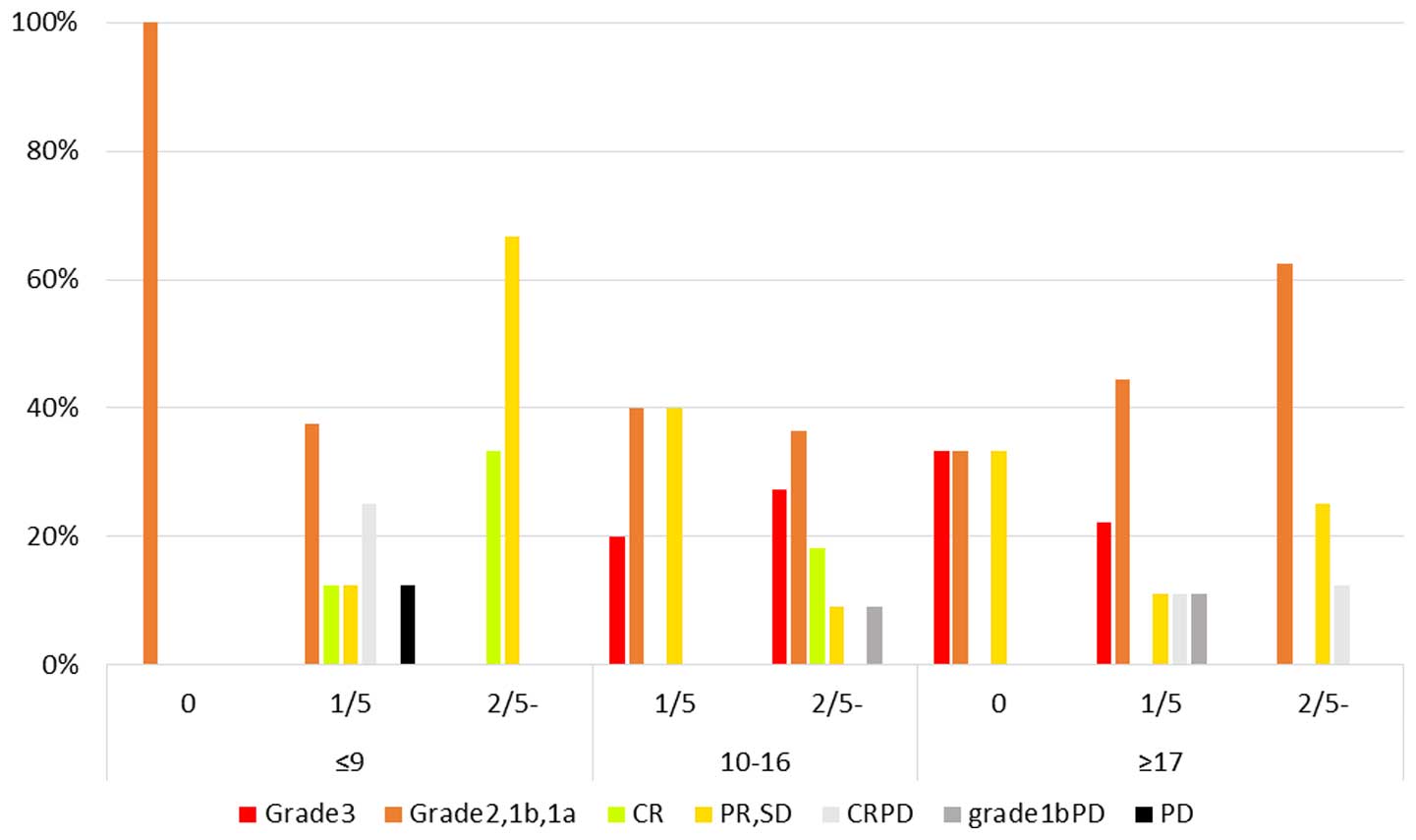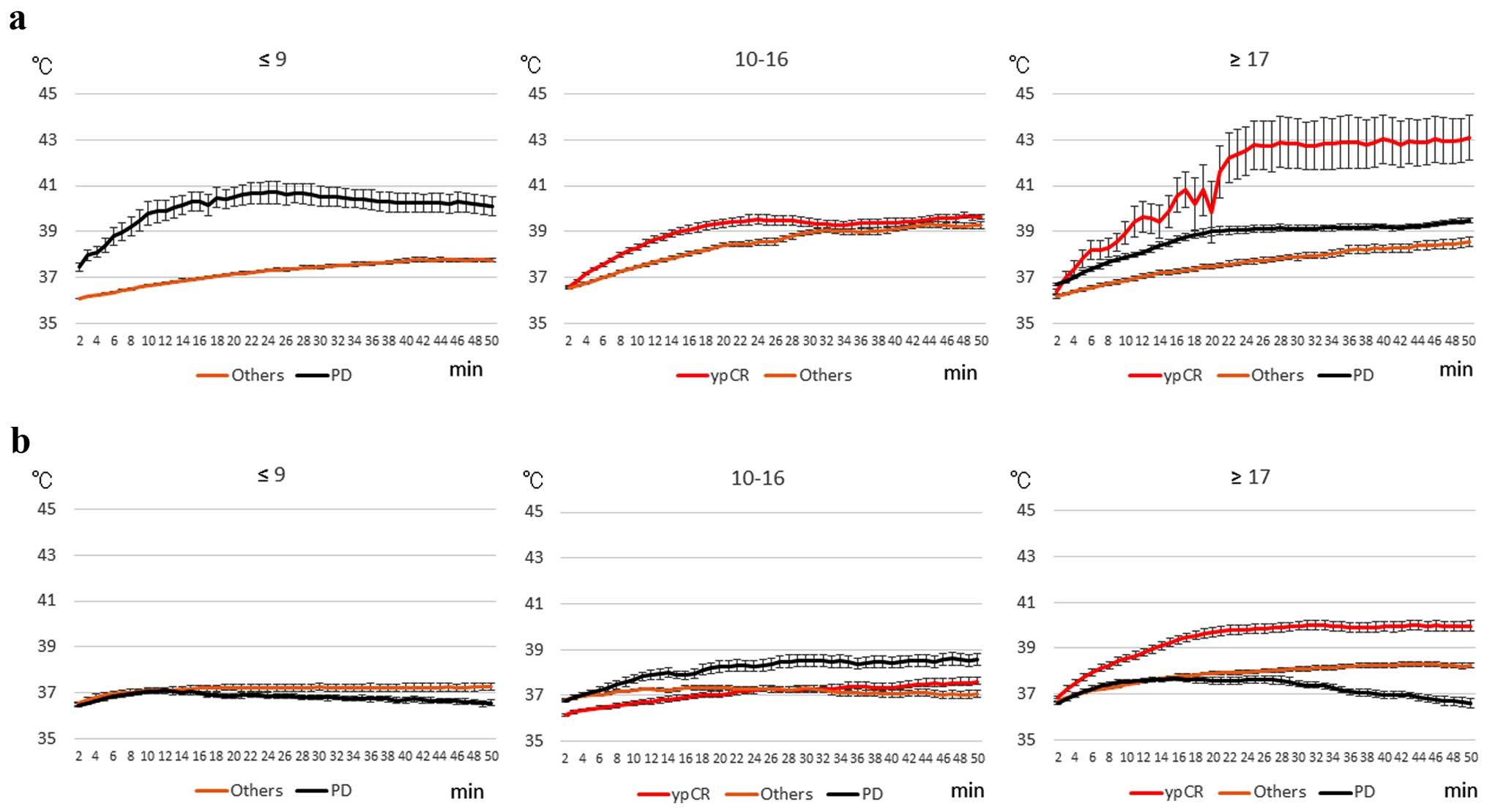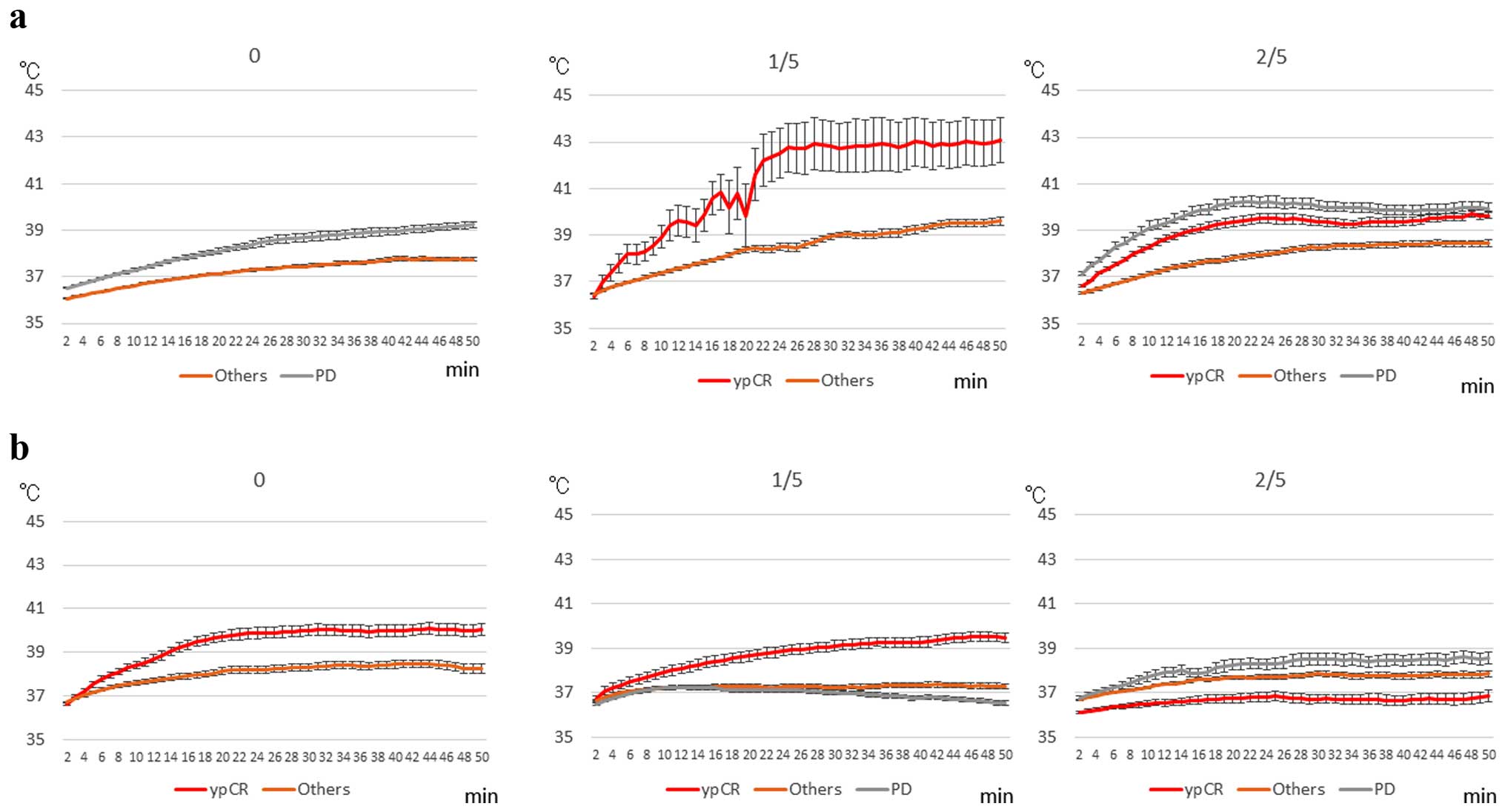|
1
|
Roussakow S: The History of Hyperthermia
Rise and Decline. Conference Papers in Medicine; 2013. article ID
428027. 2013, View Article : Google Scholar
|
|
2
|
Lee CK, Song CW, Rhee JG, Foy JA and
Levitt SH: Clinical experience using 8 MHz radiofrequency
capacitive hyperthermia in combination with radiotherapy: Results
of a phase I/II study. Int J Radiat Oncol Biol Phys. 32:733–745.
1995. View Article : Google Scholar : PubMed/NCBI
|
|
3
|
Wiersma J, van Wieringen N, Crezee H and
van Dijk JD: Delineation of potential hot spots for hyperthermia
treatment planning optimisation. Int J Hyperthermia. 23:287–301.
2007. View Article : Google Scholar : PubMed/NCBI
|
|
4
|
Vasanthan A, Mitsumori M, Park JH, Zhi-Fan
Z, Yu-Bin Z, Oliynychenko P, Tatsuzaki H, Tanaka Y and Hiraoka M:
Regional hyperthermia combined with radiotherapy for uterine
cervical cancers: A multi-institutional prospective randomized
trial of the international atomic energy agency. Int J Radiat Oncol
Biol Phys. 61:145–153. 2005. View Article : Google Scholar : PubMed/NCBI
|
|
5
|
Roussakow S: Critical analysis of
randomized trials on hyperthermia: dubious effect and multiple
biases. Conference Papers in Medicine; 2013. article ID 412186.
2013, View Article : Google Scholar : 2013
|
|
6
|
van der Zee J, González González D, van
Rhoon GC, van Dijk JD, van Putten WL and Hart AA; Dutch Deep
Hyperthermia Group: Comparison of radiotherapy alone with
radiotherapy plus hyperthermia in locally advanced pelvic tumours:
A prospective, randomised, multicentre trial. Lancet.
355:1119–1125. 2000. View Article : Google Scholar : PubMed/NCBI
|
|
7
|
Gérard A, Buyse M, Nordlinger B, Loygue J,
Pène F, Kempf P, Bosset JF, Gignoux M, Arnaud JP, Desaive C, et al:
Preoperative radiotherapy as adjuvant treatment in rectal cancer.
Final results of a randomized study of the European Organization
for Research and Treatment of Cancer (EORTC). Ann Surg.
208:606–614. 1988. View Article : Google Scholar : PubMed/NCBI
|
|
8
|
Påhlman L and Glimelius B: Pre- or
postoperative radiotherapy in rectal and rectosigmoid carcinoma.
Report from a randomized multicenter trial. Ann Surg. 211:187–195.
1990. View Article : Google Scholar : PubMed/NCBI
|
|
9
|
No authors listed. Preoperative short-term
radiation therapy in operable rectal carcinoma. A prospective
randomized trial. Stockholm Rectal Cancer Study Group. Cancer.
66:49–55. 1990. View Article : Google Scholar : PubMed/NCBI
|
|
10
|
Bosset JF, Collette L, Calais G, Mineur L,
Maingon P, Radosevic-Jelic L, Daban A, Bardet E, Beny A and Ollier
JC; EORTC Radiotherapy Group Trial 22921: Chemotherapy with
preoperative radiotherapy in rectal cancer. N Engl J Med.
355:1114–1123. 2006. View Article : Google Scholar : PubMed/NCBI
|
|
11
|
Gérard JP, Conroy T, Bonnetain F, Bouché
O, Chapet O, Closon-Dejardin MT, Untereiner M, Leduc B, Francois E,
Maurel J, et al: Preoperative radiotherapy with or without
concurrent fluorouracil and leucovorin in T3-4 rectal cancers:
Results of FFCD 9203. J Clin Oncol. 24:4620–4625. 2006. View Article : Google Scholar : PubMed/NCBI
|
|
12
|
Bosset JF, Calais G, Mineur L, Maingon P,
Stojanovic-Rundic S, Bensadoun RJ, Bardet E, Beny A, Ollier JC,
Bolla M, et al EORTC Radiation Oncology Group: Fluorouracil-based
adjuvant chemotherapy after preoperative chemoradiotherapy in
rectal cancer: Long-term results of the EORTC 22921 randomised
study. Lancet Oncol. 15:184–190. 2014. View Article : Google Scholar : PubMed/NCBI
|
|
13
|
Asao T, Sakurai H, Harashima K, Yamaguchi
S, Tsutsumi S, Nonaka T, Shioya M, Nakano T and Kuwano H: The
synchronization of chemotherapy to circadian rhythms and
irradiation in pre-operative chemoradiation therapy with
hyperthermia for local advanced rectal cancer. Int J Hyperthermia.
22:399–406. 2006. View Article : Google Scholar : PubMed/NCBI
|
|
14
|
Japanese Colon Cancer Association:
Japanese Classification of Colon Carcinoma. 8th edition. Kanehara.
Tokyo: 2013
|
|
15
|
Shoji H, Motegi M, Osawa K, Okonogi N,
Okazaki A, Andou Y, Asao T, Kuwano H, Takahashi T and Ogoshi K:
Does standardization of radiofrequency hyperthermia benefit
patients with malignancies? Ann Cancer Res Ther. 22:28–35. 2014.
View Article : Google Scholar
|
|
16
|
Therasse P, Arbuck SG, Eisenhauer EA,
Wanders J, Kaplan RS, Rubinstein L, Verweij J, Van Glabbeke M, van
Oosterom AT, Christian MC, et al: New guidelines to evaluate the
response to treatment in solid tumors European Organization for
Research and Treatment of Cancer, National Cancer Institute of the
United States, National Cancer Institute of Canada. J Natl Cancer
Inst. 92:205–216. 2000. View Article : Google Scholar : PubMed/NCBI
|
|
17
|
Common Terminology Criteria for Adverse
Events (CTCAE): U.S. National Cancer Institute, Cancer Therapy
Evaluation Program. http://ctep.cancer.gov/protocolDevelopment/electronic_applications/ctc.htm.
Accessed December 2, 2014.
|
|
18
|
Gerard JP, Rostom Y, Gal J, Benchimol D,
Ortholan C, Aschele C and Levi JM: Can we increase the chance of
sphincter saving surgery in rectal cancer with neoadjuvant
treatments: Lessons from a systematic review of recent randomized
trials. Crit Rev Oncol Hematol. 81:21–28. 2012. View Article : Google Scholar
|
|
19
|
Ricardi U, Racca P, Franco P, Munoz F,
Fanchini L, Rondi N, Dongiovanni V, Gabriele P, Cassoni P,
Ciuffreda L, et al: Prospective phase II trial of neoadjuvant
chemo-radiotherapy with oxaliplatin and capecitabine in locally
advanced rectal cancer (XELOXART). Med Oncol. 30:5812013.
View Article : Google Scholar : PubMed/NCBI
|
|
20
|
Passoni P, Fiorino C, Slim N, Ronzoni M,
Ricci V, Di Palo S, De Nardi P, Orsenigo E, Tamburini A, De Cobelli
F, et al: Feasibility of an adaptive strategy in preoperative
radiochemotherapy for rectal cancer with image-guided tomotherapy:
Boosting the dose to the shrinking tumor. Int J Radiat Oncol Biol
Phys. 87:67–72. 2013. View Article : Google Scholar : PubMed/NCBI
|
|
21
|
Landry JC, Feng Y, Cohen SJ, Staley CA
III, Whittington R, Sigurdson ER, Nimeiri H, Verma U, Prabhu RS and
Benson AB: Phase 2 study of preoperative radiation with concurrent
capecitabine, oxaliplatin, and bevacizumab followed by surgery and
postoperative 5-fluorouracil, leucovorin, oxaliplatin (FOLFOX), and
bevacizumab in patients with locally advanced rectal cancer: ECOG
3204. Cancer. 119:1521–1527. 2013. View Article : Google Scholar : PubMed/NCBI
|
|
22
|
Huang MY, Chen CF, Huang CM, Tsai HL, Yeh
YS, Ma CJ, Wu CH, Lu CY, Chai CY, Huang CJ, et al: Helical
tomotherapy combined with capecitabine in the preoperative
treatment of locally advanced rectal cancer. Biomed Res Int.
2014:3520832014. View Article : Google Scholar : PubMed/NCBI
|
|
23
|
Hernando-Requejo O, López M, Cubillo A,
Rodriguez A, Ciervide R, Valero J, Sánchez E, Garcia-Aranda M,
Rodriguez J, Potdevin G, et al: Complete pathological responses in
locally advanced rectal cancer after preoperative IMRT and
integrated-boost chemoradiation. Strahlenther Onkol. 190:515–520.
2014. View Article : Google Scholar : PubMed/NCBI
|
|
24
|
Lu JY, Xiao Y, Qiu HZ, Wu B, Lin GL, Xu L,
Zhang GN and Hu K: Clinical outcome of neoadjuvant chemoradiation
therapy with oxaliplatin and capecitabine or 5-fluorouracil for
locally advanced rectal cancer. J Surg Oncol. 108:213–219. 2013.
View Article : Google Scholar : PubMed/NCBI
|
|
25
|
Kapp DS and Cox RS: Thermal treatment
parameters are most predictive of outcome in patients with single
tumor nodules per treatment field in recurrent adenocarcinoma of
the breast. Int J Radiat Oncol Biol Phys. 33:887–899. 1995.
View Article : Google Scholar : PubMed/NCBI
|
|
26
|
Romanovsky AA: Thermoregulation: Some
concepts have changed. Functional architecture of the
thermoregulatory system. Am J Physiol Regul Integr Comp Physiol.
292:R37–R46. 2007. View Article : Google Scholar
|
|
27
|
Caterina MJ, Schumacher MA, Tominaga M,
Rosen TA, Levine JD and Julius D: The capsaicin receptor: A
heat-activated ion channel in the pain pathway. Nature.
389:816–824. 1997. View
Article : Google Scholar : PubMed/NCBI
|
|
28
|
Tominaga M, Caterina MJ, Malmberg AB,
Rosen TA, Gilbert H, Skinner K, Raumann BE, Basbaum AI and Julius
D: The cloned capsaicin receptor integrates multiple pain-producing
stimuli. Neuron. 21:531–543. 1998. View Article : Google Scholar : PubMed/NCBI
|
|
29
|
Yao J, Liu B and Qin F: Kinetic and
energetic analysis of thermally activated TRPV1 channels. Biophys
J. 99:1743–1753. 2010. View Article : Google Scholar : PubMed/NCBI
|















